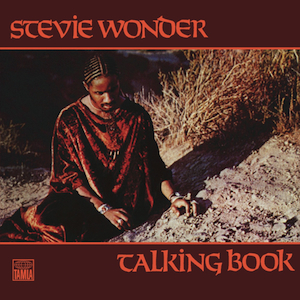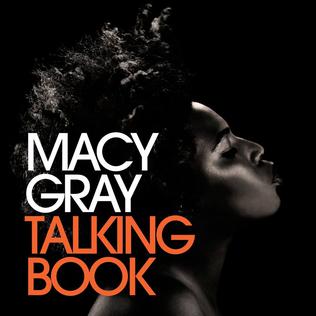Talk radio is a radio format containing discussion about topical issues and consisting entirely or almost entirely of original spoken word content rather than outside music. Most shows are regularly hosted by a single individual, and often feature interviews with a number of different guests. Talk radio typically includes an element of listener participation, usually by broadcasting live conversations between the host and listeners who "call in" to the show. Listener contributions are usually screened by a show's producers in order to maximize audience interest and, in the case of commercial talk radio, to attract advertisers. Generally, the shows are organized into segments, each separated by a pause for advertisements; however, in public or non-commercial radio, music is sometimes played in place of commercials to separate the program segments. Variations of talk radio include conservative talk, hot talk, liberal talk and sports talk.

Stevland Hardaway Morris, better known by his stage name Stevie Wonder, is an American singer, songwriter, musician, record producer, and multi-instrumentalist.

Macy Gray is an American R&B and soul singer-songwriter, musician, record producer and actress. She is known for her distinctive raspy voice and a singing style heavily influenced by Billie Holiday.
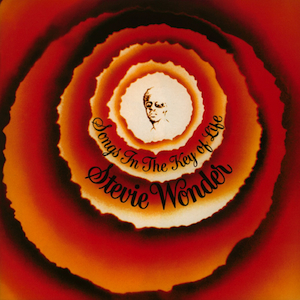
Songs in the Key of Life is the eighteenth album by American recording artist Stevie Wonder, released on September 28, 1976, by Motown Records, through its division Tamla Records. It was the culmination of his "classic period" albums. The album was recorded primarily at Crystal Sound studio in Hollywood, with some sessions recorded at the Record Plant in Hollywood, the Record Plant in Sausalito, and The Hit Factory in New York City. Final mixing was performed at Crystal Sound.
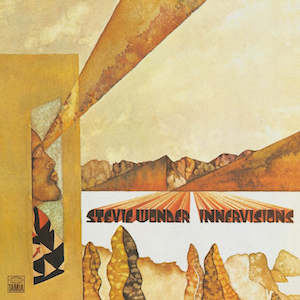
Innervisions is the 16th studio album by American musician Stevie Wonder, released August 3, 1973, on the Tamla label for Motown Records, a landmark recording of his "classic period". The nine tracks of Innervisions encompass a wide range of themes and issues: from drug abuse in "Too High", through inequality and systemic racism in "Living for the City", to love in the ballads "All in Love Is Fair" and "Golden Lady". The album's closer, "He's Misstra Know-It-All", is a scathing attack on then-US President Richard Nixon, similar to Wonder's song a year later, "You Haven't Done Nothin'".

"Superstition" is a song by American singer-songwriter Stevie Wonder. It was released on October 24, 1972, as the lead single from his fifteenth studio album, Talking Book (1972), by Tamla. The lyrics describes popular superstitions and their negative effects.

Music of My Mind is the fourteenth studio album by American soul musician Stevie Wonder. It was released on March 3, 1972, by Tamla Records. Wonder used synthesizers for many musical parts on this album. It was a modest commercial success, but critics found the record representative of Wonder's artistic growth, and many contemporary critics consider it the first album of his classic period.

On How Life Is is the debut studio album by American singer and songwriter Macy Gray. It was released on July 1, 1999, by Epic Records. Produced by Andrew Slater, it became Gray's best-selling album to date, selling 3.2 million copies in the United States and seven million copies worldwide.

A Very Special Christmas 5 is the fifth in the A Very Special Christmas series of Christmas-themed compilation albums produced to benefit Special Olympics. Several of the album's tracks were recorded live in Washington, D.C. in December 2000 at a benefit concert hosted by then-President Bill Clinton and First Lady Hillary Clinton. The album was released on 30 October 2001, with production supervision by Bobby Shriver, Jon Bon Jovi, and Joel Gallen for A&M Records.
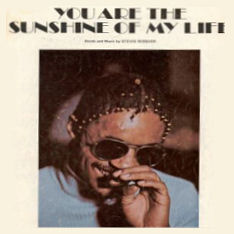
"You Are the Sunshine of My Life" is a 1973 single released by Stevie Wonder. The song became Wonder's third number-one single on the Billboard Hot 100 chart and his first number-one on the Easy Listening chart. It won Wonder a Grammy Award for Best Male Pop Vocal Performance, and was nominated for both Record of the Year and Song of the Year. This song was the second single released from the 1972 album entitled Talking Book, which stayed at number one on the R&B charts for three weeks.

"You Haven't Done Nothin'" is a 1974 funk single by Stevie Wonder, taken from his album Fulfillingness' First Finale and featuring background vocals by The Jackson 5. The politically aware song became Wonder's fourth Number 1 pop hit and his tenth Number 1 soul hit. In the UK the single spent five weeks on the chart, peaking at Number 30.

The Woman in Red: Original Motion Picture Soundtrack is the second soundtrack album released by American musician Stevie Wonder on the Motown label. Also featuring Dionne Warwick, the album was released in 1984 for the film of the same name. It features Wonder's biggest hit, "I Just Called to Say I Love You", which hit #1 internationally and won the Academy Award for Best Original Song, and also features the follow-up hit, "Love Light in Flight" and "Don't Drive Drunk", the song and the accompanying music video for which were used in the Ad Council and the US Department of Transportation's Drunk Driving Prevention public service announcement the following year.

In Square Circle is the twentieth studio album by American singer-songwriter Stevie Wonder, released in 1985. The album features the hits "Part-Time Lover", "Go Home" and "Overjoyed". The album won Wonder the Grammy Award for Best Male R&B Vocal Performance at the 28th Grammy Awards.

"How Come, How Long" is a song written, produced and performed by Babyface. It was released as the third single from his album The Day. It is a duet with American singer-songwriter Stevie Wonder.
"You and I " is a song written and sung by Stevie Wonder from his 1972 album Talking Book. Wonder is also credited for playing piano and T.O.N.T.O. synthesizer on the song.
Imhotep Gary Byrd is a New York City-based radio talk show host and executive producer, radio DJ, poet, songwriter, music recording artist and producer, rapper, writer and community advocate/activist. Byrd began his career as a radio DJ in Buffalo at age 15. In 2015, he celebrated 50 years as a radio personality. For over 30 years, he’s been a talk show host at WBLS and WLIB radio in New York City.

The Way is the eighth full-length studio album by American recording artist Macy Gray, released on October 7, 2014 on Kobalt Records. The record follows her Stevie Wonder tribute album Talking Book. Gray supported the album with a North American and Australian tour. The album was molded around the idea that there is little music in today's mainstream for a mature audience.

"All in Love Is Fair" is a song by American singer-songwriter Stevie Wonder recorded for his sixteenth studio album, Innervisions (1973). Written and produced by Wonder, it was released as a 7" single in Brazil in 1974. The song is a pop ballad with lyrics that describe the end of a relationship through the use of clichés. Critical reaction to the song was varied: Matthew Greenwald of AllMusic wrote that it was among Wonder's "finest ballad statements", but Robert Christgau felt that the singer's performance was "immature". Wonder has included it on several of his greatest hits albums, including the most recent, 2005's The Complete Stevie Wonder.
